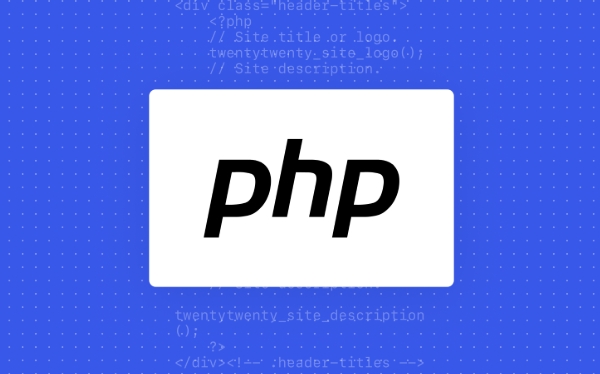 Backend Development
Backend Development
 PHP Tutorial
PHP Tutorial
 The Null Coalescing Operator (??): A Modern Approach to Handling Nulls
The Null Coalescing Operator (??): A Modern Approach to Handling Nulls
The Null Coalescing Operator (??): A Modern Approach to Handling Nulls
Aug 01, 2025 am 07:45 AMThe null coalescing operator (??) provides a concise way to assign default values when dealing with null or undefined. 1. It returns the left operand if it is not null or undefined; otherwise, it returns the right operand. 2. Unlike the logical OR (||) operator, ?? only triggers the fallback for null or undefined, preserving falsy values like "", 0, or false. 3. Common use cases include default parameters, configuration settings, API responses, and user input handling. 4. Chaining is supported: value1 ?? value2 ?? value3 returns the first non-null value. 5. Language differences exist—C# supports nullable types, PHP suppresses undefined variable errors, and JavaScript strictly checks null and undefined. 6. Operator precedence requires parentheses when combining with && or ||. Using ?? leads to safer, more predictable code by distinguishing missing values from valid falsy ones, making it superior to || for default value assignment when intent is to handle only null or undefined, and this clarity enhances code readability and reliability.

The ?? operator—known as the null coalescing operator—is a clean, modern way to handle null values in languages like C#, PHP, JavaScript (as of ES2020), and others. It simplifies default value assignment when dealing with potentially null or undefined expressions, making code more readable and less error-prone than traditional checks.

What the Null Coalescing Operator Does
The ?? operator returns the left-hand operand if it’s not null or undefined; otherwise, it returns the right-hand operand.
string name = userInput ?? "Guest";
In this example:

- If
userInputis notnull,namegets the value ofuserInput. - If
userInputisnull,namedefaults to"Guest".
This is functionally equivalent to:
string name = userInput != null ? userInput : "Guest";
But it's shorter, clearer, and avoids repeating the variable.

Why It’s Better Than Ternary or OR (||)
A common alternative—especially in JavaScript—has been the logical OR (||) operator:
const name = userInput || "Guest";
But there's a key difference: || falls back on any falsy value (like "", 0, false, NaN), not just null or undefined.
const userInput = ""; const name = userInput || "Guest"; // returns "Guest" — maybe not intended!
With ??, only null or undefined trigger the fallback:
const name = userInput ?? "Guest"; // returns "" — preserves empty string
So if you want to distinguish between null and valid but falsy values, ?? is safer and more precise.
Practical Use Cases
Here are common scenarios where ?? shines:
- Default function parameters (in languages that support it)
- Configuration fallbacks
- API response handling
- User input sanitization
For example, in C#:
int timeout = config.Timeout ?? 30;
Or in PHP:
$theme = $_SESSION['theme'] ?? 'light';
You can also chain multiple ?? operators:
string displayName = user.ProvidedName ?? user.Username ?? "Anonymous";
This reads naturally: “Use the provided name if available, otherwise the username, otherwise call them Anonymous.”
Caveats and Language Differences
- In C#,
??works with nullable value types and reference types. - In PHP, it returns the right operand if the left is
null(doesn’t trigger warnings if the variable doesn’t exist, unlike??=). - In JavaScript,
??is only fornullandundefined—it respects0,false, and"".
Also, operator precedence matters. ?? has lower precedence than most operators, so wrap it in parentheses when mixing with && or ||:
const result = (value ?? defaultValue) && isActive;
Bottom Line
The null coalescing operator isn’t just syntactic sugar—it encourages safer, more intentional handling of null values. By focusing only on null and undefined, it avoids the pitfalls of truthiness-based fallbacks. Once you start using ??, you’ll likely find yourself reaching for || less often in default-value scenarios.
Basically: use ?? when you mean “if this is missing, use that”—not “if this is falsy.” It’s a small operator with a big impact on code clarity.
The above is the detailed content of The Null Coalescing Operator (??): A Modern Approach to Handling Nulls. For more information, please follow other related articles on the PHP Chinese website!

Hot AI Tools

Undress AI Tool
Undress images for free

Undresser.AI Undress
AI-powered app for creating realistic nude photos

AI Clothes Remover
Online AI tool for removing clothes from photos.

Clothoff.io
AI clothes remover

Video Face Swap
Swap faces in any video effortlessly with our completely free AI face swap tool!

Hot Article

Hot Tools

Notepad++7.3.1
Easy-to-use and free code editor

SublimeText3 Chinese version
Chinese version, very easy to use

Zend Studio 13.0.1
Powerful PHP integrated development environment

Dreamweaver CS6
Visual web development tools

SublimeText3 Mac version
God-level code editing software (SublimeText3)

Hot Topics
 Demystifying Type Juggling: The Critical Difference Between `==` and `===`
Jul 30, 2025 am 05:42 AM
Demystifying Type Juggling: The Critical Difference Between `==` and `===`
Jul 30, 2025 am 05:42 AM
Using === instead of == is the key to avoid PHP type conversion errors, because == will cause unexpected results, and === compare values and types at the same time to ensure accurate judgment; for example, 0=="false" is true but 0==="false" is false, so when dealing with return values that may be 0, empty strings or false, === should be used to prevent logical errors.
 When Not to Use the Ternary Operator: A Guide to Readability
Jul 30, 2025 am 05:36 AM
When Not to Use the Ternary Operator: A Guide to Readability
Jul 30, 2025 am 05:36 AM
Avoidnestedternariesastheyreducereadability;useif-elsechainsinstead.2.Don’tuseternariesforsideeffectslikefunctioncalls;useif-elseforcontrolflow.3.Skipternarieswithcomplexexpressionsinvolvinglongstringsorlogic;breakthemintovariablesorfunctions.4.Avoid
 Beyond `if-else`: Exploring PHP's Alternative Control Structures
Jul 30, 2025 am 02:03 AM
Beyond `if-else`: Exploring PHP's Alternative Control Structures
Jul 30, 2025 am 02:03 AM
The alternative control structure of PHP uses colons and keywords such as endif and endfor instead of curly braces, which can improve the readability of mixed HTML. 1. If-elseif-else starts with a colon and ends with an endif, making the condition block clearer; 2. Foreach is easier to identify in the template loop, and endforeach clearly indicates the end of the loop; 3. For and while are rarely used, they are also supported. This syntax has obvious advantages in view files: reduce syntax errors, enhance readability, and is similar to HTML tag structure. But curly braces should continue to be used in pure PHP files to avoid confusion. Therefore, alternative syntax is recommended in templates that mix PHP and HTML to improve code maintainability.
 Optimizing Conditional Logic: Performance Implications of `if` vs. `switch`
Aug 01, 2025 am 07:18 AM
Optimizing Conditional Logic: Performance Implications of `if` vs. `switch`
Aug 01, 2025 am 07:18 AM
Sometimes it will affect performance, depending on the language, compiler optimization and logical structure; 1. If statements are executed in order, and the worst case time complexity is O(n), the most likely condition should be placed first; 2. The switch statement can be optimized by the compiler to a jump table of O(1) when the conditions are continuous integers, many branches and the values are compiled constants; 3. When a single variable is compared with multiple constant integers and there are many branches and switches are faster; 4. When it involves scope judgment, complex conditions, non-integer types or fewer branches, if if is more suitable or has similar performance; 5. Different languages (such as C/C, Java, JavaScript, C#) have different optimization degrees of switches, and they need to be tested in combination with actual testing; Swi should be used first
 The Null Coalescing Operator (??): A Modern Approach to Handling Nulls
Aug 01, 2025 am 07:45 AM
The Null Coalescing Operator (??): A Modern Approach to Handling Nulls
Aug 01, 2025 am 07:45 AM
Thenullcoalescingoperator(??)providesaconcisewaytoassigndefaultvalueswhendealingwithnullorundefined.1.Itreturnstheleftoperandifitisnotnullorundefined;otherwise,itreturnstherightoperand.2.UnlikethelogicalOR(||)operator,??onlytriggersthefallbackfornull
 Refactoring Nested `if` Hell: Strategies for Cleaner Conditional Logic
Jul 30, 2025 am 04:28 AM
Refactoring Nested `if` Hell: Strategies for Cleaner Conditional Logic
Jul 30, 2025 am 04:28 AM
Useguardclausestoreturnearlyandflattenstructure.2.Extractcomplexconditionsintodescriptivefunctionsorvariablesforclarityandreuse.3.Replacemultipleconditioncombinationswithalookuptableorstrategypatterntocentralizelogic.4.Applypolymorphismtoeliminatetyp
 Crafting Bulletproof Conditionals with Strict Type Comparisons
Jul 30, 2025 am 04:37 AM
Crafting Bulletproof Conditionals with Strict Type Comparisons
Jul 30, 2025 am 04:37 AM
Alwaysusestrictequality(===and!==)inJavaScripttoavoidunexpectedbehaviorfromtypecoercion.1.Looseequality(==)canleadtocounterintuitiveresultsbecauseitperformstypeconversion,making0==false,""==false,"1"==1,andnull==undefinedalltrue.2
 `&&` vs. `and`: Unveiling the Subtle but Critical Differences in PHP
Aug 01, 2025 am 06:04 AM
`&&` vs. `and`: Unveiling the Subtle but Critical Differences in PHP
Aug 01, 2025 am 06:04 AM
&& and and are the same logical functions in PHP, but the priority is different, resulting in different execution orders; && priority is higher than and and and the priority is lower than the assignment operator =; therefore $success=trueandfalse is actually parsed as ($success=true)andfalse, making $success still true; 1. Use && and || in conditional judgment; 2. Use and and or only in control flows (such as $file=fopen()ordie()); 3. Complex expressions should use brackets to clarify the priority; 4. Avoid mixing and/or in assignments unless explicitly intended.





